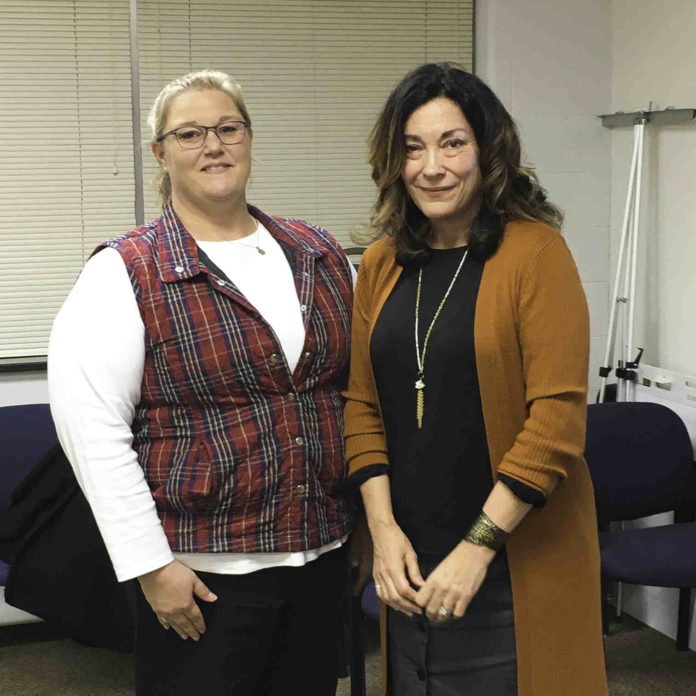
Story and Photo by Stefanie Jackson
Dr. Arthur Carter, a longtime Northampton resident and concerned citizen, opened a dialogue with the county school board on restorative justice, an alternative method of school discipline that aims to reduce suspensions and prevent the disruption of children’s education and socialization.
Carter has spoken to the school board on numerous occasions about restorative justice, but on Jan. 24, he got a response.
He began by reading from a report on the impact of school suspensions, “Suspended Progress,” published in October 2018 by the Legal Aid Justice Center, of Charlottesville, Va. The center has provided legal representation to low-income Virginians since 1967 and its mission is to fight the inequities that keep people in poverty.
“A system that separates children from their education and leaves them unsupported at a time when they need it most is a broken system,” the report stated.
According to the report, 69,134 Virginia students received 123,729 short-term suspensions during the 2016-2017 school year – the most recent period for which data was available. More than 10 percent of ninth graders were suspended at least once in that time.
A suspension of up to 10 days, or two weeks of instruction, is considered “short-term,” with the average short-term suspension lasting three days.
Virginia students missed 586,280 days, or more than 33 million hours of instruction during the 2016-2017 school year due to short-term suspensions, long-term suspensions, and expulsions combined.
The Legal Aid Justice Center found it “appalling” that 55 percent of short-term suspensions are given for non-violent offenses such as violating attendance policies, using cellphones or other electronic devices, eating or drinking in class, using obscene language or gestures, defying authority, disrespect, and disrupting instruction.
But “perhaps most disturbing … is an increase in the already astonishing rate that Virginia schools continue to disproportionately suspend black students.”
Black students are suspended 4.5 times more than white and Hispanic students. Black students make up 23 percent of all Virginia students but receive 50 percent or more of all short-term suspensions, long-term suspensions, and expulsions.
Furthermore, nearly 11 percent of students with disabilities have been suspended short-term at least once, more than double the amount of students without disabilities who have been suspended.
“Disparities in suspension are especially pronounced when examining the overlap of race, sex, and disability,” Carter read. For example, a black, male, disabled student is more than 20 times as likely to be suspended as a white, female, non-disabled student.
The report observed that often the most economically disadvantaged school divisions also have the highest suspension rates, “meaning that Virginia’s most vulnerable students are also most likely to be pushed out of school.”
“This is the saddest part,” Carter said. Northampton ranked in the top 20 school divisions with the highest short-term suspension rates five years in a row as of the 2016-2017 school year, out of more than 130 Virginia school divisions.
“The good news is: there are proven ways we can fix it,” the report stated.
The Legal Aid Justice Center defines restorative practices as “non-punitive methods that provide meaningful, appropriate accountability” by focusing on “repairing the harm done, developing a workable plan for restoring relationships or damage, and including victims and others affected … in the process.”
For example, the plan may include property repair, school service projects, or relationship skill-building exercises.
The writers were also concerned that “most school divisions offer no meaningful opportunity to maintain educational progress while a student is excluded from school.”
They want the Virginia General Assembly to “continue to enact legislation that limits the use and duration of suspension and expulsion,” like Senate Bill 170, which Gov. Ralph Northam signed in 2018, limiting suspensions and expulsions for students in pre-K to third grade.
Virginia legislators should also “require the continued provision of free, high-quality education for all students removed or re-assigned from public K-12 classrooms or schools for disciplinary reasons.”
“I submit this for the record, and humbly and respectfully await our school system to partner with our Northampton County restorative justice committee and with other organizations … so that we can proactively plan for the resources, human, financial, and otherwise to faithfully implement restorative practices in our schools and forever put down exclusionary, punitive discipline,” Carter said.
One school board member, Randy Parks, responded that Northampton schools recently implemented a social-emotional learning program for kindergarten through third grade. The school division expects to eventually offer the program to all grades.
“We are not standing still on your proposal at all,” Parks assured Carter.
“Social-emotional learning is not restorative justice,” Carter pointed out.
“We understand that,” Parks said.
Carter acknowledged that social-emotional learning programs and related efforts are “wonderful things … and the point I want to make … is restorative practices is a foundation that enhances all of these,” he said.
Mathews High School, across the bay, has implemented the same social-emotional learning program as Northampton. Parks said the school board plans to speak with Mathews High School’s principal to get a better understanding of the most effective methods of implementing the program.
Carter previously suggested Northampton County should seek input from Fairfax, which has successfully implemented restorative justice in its schools. Parks said Mathews County would be a better source of information, because the small, rural county is more similar to Northampton.
Carter agreed, but he still sees the value in learning more about Fairfax’s experience because it has “a longer record of success with this,” and Northampton can “pick and choose what works best for us.”
“I have confidence in you, and I’m waiting for, at some point, a motion and a second … for us to go forward together as a community.” Carter said.


